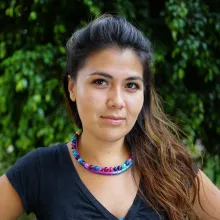
Strategic litigation and its role in the pursuit of justice
Photo: Daniel Coria on Pixabay.In La Guajira, Colombia, indigenous Wayuu and Afro-Colombian communities—accompanied by civil society organizations—initiated litigation to defend their rights to water, food security and ethnic integrity, all of which are at risk from the diversion of the Bruno stream for the expansion of El Cerrejón, the largest open-pit coal mine in Latin America.
The goal of bringing this particular case to court is not only to prevent the loss of an important water source. The litigation also seeks to set a precedent in the country and on the continent for the protection of rural communities against the systematic violation of their rights. It also represents an important action in the face of the climate crisis, a global problem aggravated by the continued extraction and burning of coal and other fossil fuels.
The case can be categorized as strategic litigation, also called impact litigation, which consists of selecting and filing a lawsuit in order to promote the protection of rights or changes in public policy, while achieving broad changes in society, i.e., those that extend beyond a particular case.
Strategic litigation is a tool that, through the law, promotes social transformations and strengthens human rights protections.
It is strategic because, based on a legal cause, it seeks to change unjust realities and position issues that are key to the formation of a democratic society. In this sense, the ultimate goal of strategic litigation is to leave a lasting mark, a judicial precedent that can be replicated.
It is also strategic because it includes the use of communication strategies, social mobilization, and political advocacy to put relevant debates on the table regarding the recognition of rights. When legal actions involve local communities, they also become a tool to help strengthen their internal processes of defense.
Its premises and characteristics have made strategic litigation an important means to promote the protection of key ecosystems and human rights, including the right to health and a healthy environment, and the rights of indigenous peoples, communities and groups in vulnerable situations.
Components
As described above, strategic litigation is consciously designed to achieve broad goals and to generate a roadmap for future litigation. It consists of many different elements, including the following:
- A robust legal strategy that, on many occasions, must be enriched with interdisciplinary technical and scientific arguments.
- A communications strategy.
- Social or community organizing, which means involving communities, networks and local organizations in all phases of the litigation under a perspective of active participation and collective strategy construction.
- A strategy to protect against scenarios of risk that the litigation may cause.
- Political advocacy before decision-makers.
Objectives and scope
Although there are many, three main objectives of strategic litigation are to:
- Place important debates in the public opinion.
- Promote social mobilization around a common cause.
- Strengthen the rule of law, which means that citizens invite the State and judges to recognize rights, make problems visible, and ultimately strengthen the democratic system.
Strategic litigation has been especially important for struggles and causes in which it is difficult for social movements and communities to position the recognition of their rights in legislative and public policy agendas.
At AIDA, we believe that all people should have full access to environmental justice, and strategic litigation has been a powerful tool to guarantee the individual and collective right to a healthy environment in Latin America.
To achieve this, we select emblematic cases and projects where the strategic use of international law and scientific argumentation can set key precedents. We work closely with local organizations and allies to jointly build the litigation process, design communication campaigns, and complete risk analyses that promote the protection of all stakeholders involved in litigation.
Liliana Ávila

Liliana A. Ávila is the Director of AIDA's Human Rights and Environment Program. A Colombian, she works from the Bogotá office. Liliana is an attorney from the Universidad Externado de Colombia, a specialist in constitutional law, and holds a Masters in Legal Argumentation from the University of Alicante in Spain. She has experience in international human rights law and international systems for the protection of human rights. She's a professor of international law at the Universidad Externado and has worked as a legal advisor on human rights, international humanitarian law, and public health.
